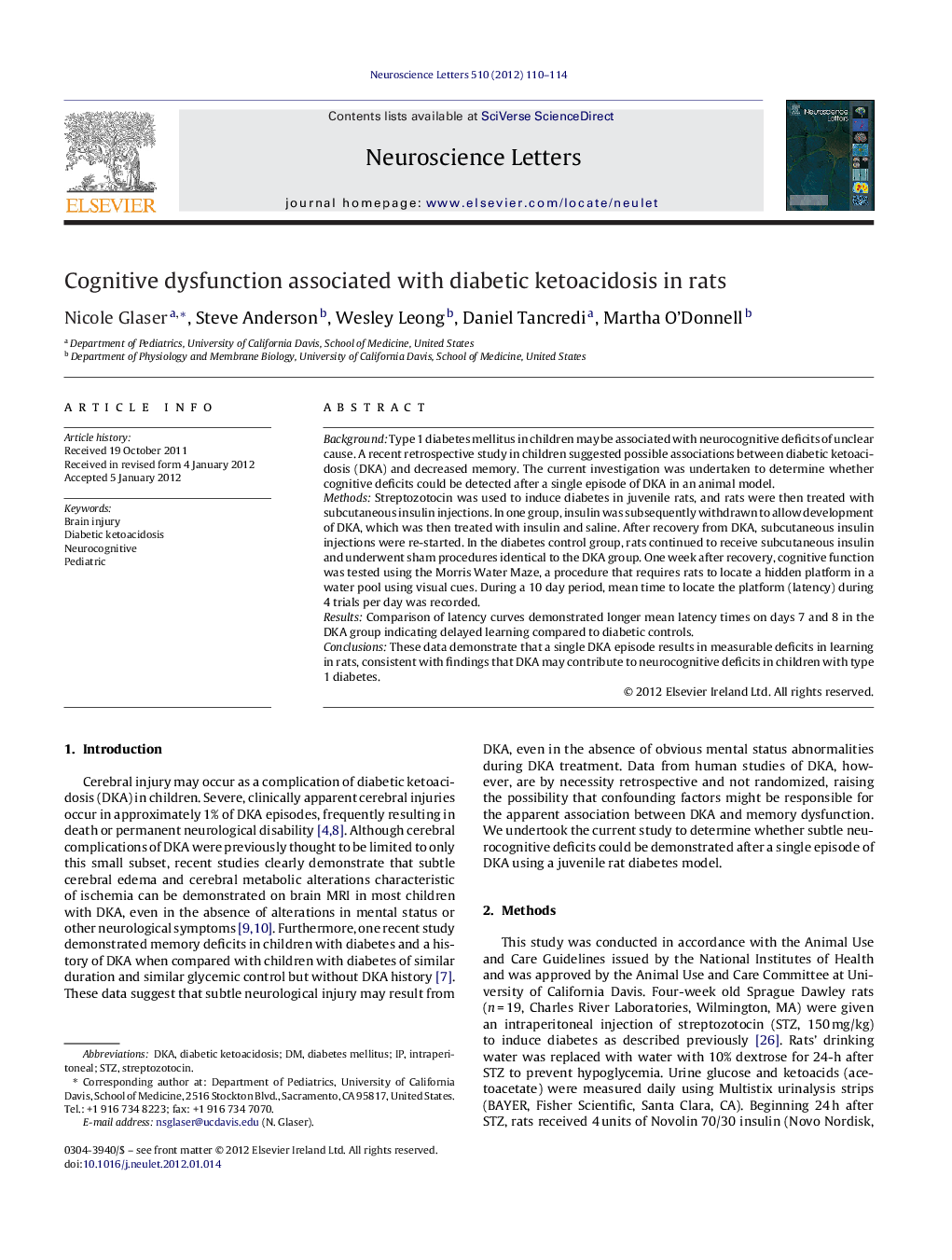| Article ID | Journal | Published Year | Pages | File Type |
|---|---|---|---|---|
| 4344741 | Neuroscience Letters | 2012 | 5 Pages |
BackgroundType 1 diabetes mellitus in children may be associated with neurocognitive deficits of unclear cause. A recent retrospective study in children suggested possible associations between diabetic ketoacidosis (DKA) and decreased memory. The current investigation was undertaken to determine whether cognitive deficits could be detected after a single episode of DKA in an animal model.MethodsStreptozotocin was used to induce diabetes in juvenile rats, and rats were then treated with subcutaneous insulin injections. In one group, insulin was subsequently withdrawn to allow development of DKA, which was then treated with insulin and saline. After recovery from DKA, subcutaneous insulin injections were re-started. In the diabetes control group, rats continued to receive subcutaneous insulin and underwent sham procedures identical to the DKA group. One week after recovery, cognitive function was tested using the Morris Water Maze, a procedure that requires rats to locate a hidden platform in a water pool using visual cues. During a 10 day period, mean time to locate the platform (latency) during 4 trials per day was recorded.ResultsComparison of latency curves demonstrated longer mean latency times on days 7 and 8 in the DKA group indicating delayed learning compared to diabetic controls.ConclusionsThese data demonstrate that a single DKA episode results in measurable deficits in learning in rats, consistent with findings that DKA may contribute to neurocognitive deficits in children with type 1 diabetes.
► Children with diabetes may develop neurocognitive deficits of unclear cause. ► We tested learning in rats after diabetic ketoacidosis (DKA) using the Morris Water Maze. ► Rats exposed to DKA had decreased maze learning compared to diabetic controls. ► These data may partially explain neurocognitive deficits in children with diabetes. ► Increased efforts to diminish DKA frequency in children are necessary.
